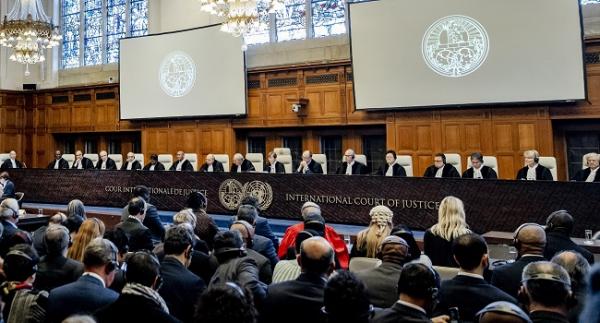
The police are to be given new powers to seize the passports of terrorist suspects and stop British jihadists from returning to the UK, David Cameron has said.
It was “abhorrent” British citizens had “declared their allegiance” to groups like Islamic State, he told MPs.
He said the UK was looking at “specific and discretionary” powers to bar suspects from returning the UK.
Powers to monitor suspects in the UK will also be strengthened.
The statement to MPs comes after the UK’s terror threat level was raised to “severe” from “substantial” on Friday.
Some Tories have urged new powers to seize passports from returning fighters but Lib Dems have urged caution.
In a Commons statement and question and answer session which could last two hours, the prime minister is talking about developments in the Middle East and their implications for British security amid concerns about the risk of Britons who have travelled to fight with Islamic State (IS) in Iraq or Syria carrying out an attack on UK soil upon their return.
Mr Cameron, addressing MPs on their first day back since July, is also covering the situation in Ukraine, and the weekend’s EU summit.
No 10 has sought to play down reports of a rift with the Liberal Democrats over the measures after the prime minister and his Lib Dem deputy Nick Clegg were locked in talks over the weekend.
It has been reported that new laws are being considered to seize passports and impose temporary bans on fighters travelling home from foreign conflicts.
Under the proposals, UK nationals suspected of being involved in terror acts would be allowed to keep their British citizenship, but they would be prevented from re-entering the UK for a period of time.
However, the Liberal Democrats have questioned the legality of such measures, warning that rendering citizens stateless was regarded as illegal in international law.
The Lib Dems have said they will only agree to policies that are made calmly, on the basis of evidence and maintain the liberty of British citizens.
Labour and the police have called for the return of powers that would allow authorities to put jihadists under closer surveillance and to disrupt their travel plans.
They want the government to consider the case for re-introducing control orders – which were scrapped in 2011 – or to beef up the existing terrorism prevention and investigation measures which replaced them.
It is already a criminal offence to travel abroad to commit or prepare a terrorist offence or to travel for the purpose of terrorist training, with suspects able to be prosecuted in the UK.
The BBC’s political editor Nick Robinson said the home secretary already had executive powers to seize passports in certain cases but these powers could be legally challenged and ministers were worried about appeals taking too long and decisions being overturned.
However, he believed extending powers to remove the citizenship of British nationals was “not a runner”, because it risked breaching UN treaties and could legitimise other countries doing the same in different circumstances.
Instead, he said the UK was looking at working with Germany, Turkey and other countries through which suspected British jihadists travelled to and from the Middle East to alert them to their presence so they could be detained and questioned before setting foot on UK soil.
Agreement has been reached within the coalition on forcing airlines to hand over more information about passengers travelling to and from conflict zones.
Earlier, Sir Edward Garnier, a Conservative MP and barrister, told the BBC there were existing laws to prevent certain people – including potential terrorists and football hooligans – travelling abroad.
However, he said there were legal issues around the prospect of rendering people “even temporarily stateless” and he said the new measures needed to be carefully considered.
“If we make announcements that we cannot follow up on in a practical sense then we make promises we can’t keep,” the former solicitor general told BBC Breakfast.
“What we have to do is balance what is the right thing to do – and there is an expectation the government should be doing more – against what is legally proper to do.”
IS militants have seized swathes of territory in Syria and Iraq and have been condemned for the mass slaughter of religious minorities in the region, including Iraqi Christians and the Yazidi community.
The UK is assisting Iraqi and Kurdish forces fighting Islamic State as well as providing humanitarian aid to those displaced by the fighting.
On Sunday, the RAF delivered 11 tonnes of equipment directly to the northern city of Erbil, including ammunition supplied by other nations and body armour helmets provided by the UK.
BBC






















